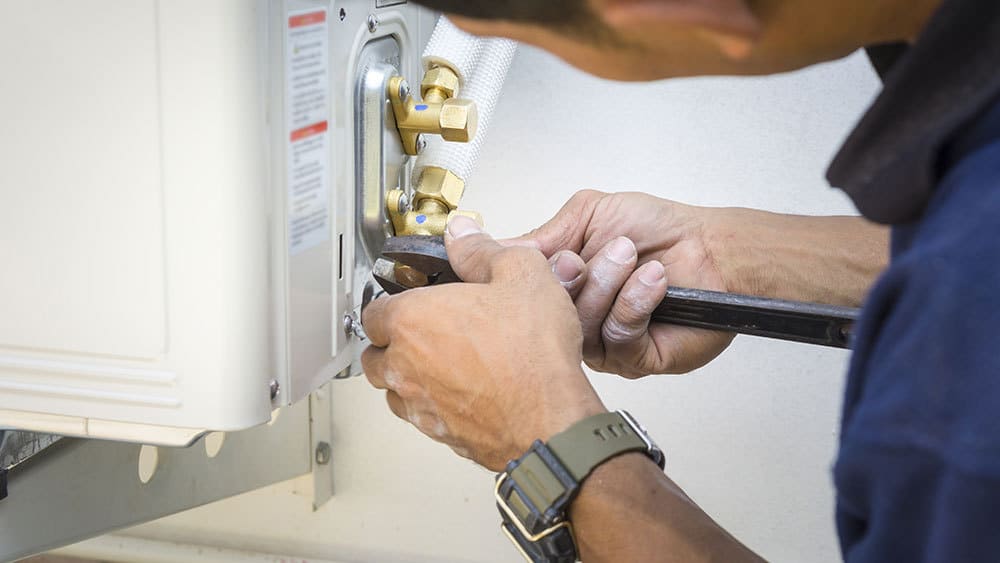
Key Takeaways
- HVAC preventative maintenance keeps your system running smoothly with regular filter changes, coil cleaning, and system inspections.
- Seasonal HVAC preventive maintenance prepares your HVAC for high-demand periods.
- Schedule professional tune-ups at least once a year to catch potential issues early on.
What starts as a small issue — like a clogged filter or dirty coil can quickly snowball into a major breakdown, leaving you with unexpected repair bills. With $14 billion spent on HVAC repairs every year, most breakdowns result from skipped maintenance, something that could easily be avoided with regular proactive HVAC care.
This blog provides a comprehensive HVAC preventative maintenance checklist to help you keep your system running at its best, along with key benefits of making regular maintenance a part of your routine.
What Is an HVAC Preventative Maintenance Checklist?
A preventive maintenance checklist for HVAC outlines all the essential components that need servicing, tracks past maintenance dates, and schedules future service intervals.
Here are the key parts of your HVAC that require maintenance:
- Air filters
- Coils (evaporator and condenser coils)
- Condensate drain line
- Electrical connections and controls
- Fan and blower components
- Ductwork
- Air vents and registers
- Safety controls
- Thermostat
Complete HVAC Preventive Maintenance Checklist
This simple HVAC preventive maintenance checklist can help you avoid costly emergency repairs and keep your system running smoothly.
You may be able to complete some or all of the tasks in the proactive maintenance checklist, depending on your skill level. If you are unsure at any step, you can consult an HVAC professional for help.

Monthly HVAC Maintenance Tasks
- Clean AC air filters every two weeks and get them replaced every 3-4 months. Smart thermostats for mini-splits like Cielo Breez support preventive HVAC maintenance by tracking your air filter status.
- Ensure your thermostat functions correctly and is set to the desired temperature. Replace thermostat batteries if applicable.
- Remove any debris or vegetation around the outdoor condenser unit to maintain proper airflow.
- Dust the indoor vents regularly.
Your best choice to make any mini-split, window,
or portable AC smart. Enhance your comfort and savings.
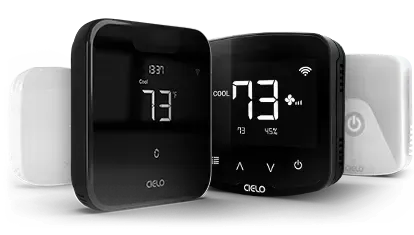
Seasonal HVAC Maintenance Tasks
Spring/Summer HVAC Maintenance
Spring is the ideal time to get your air conditioning ready for the hot summer months.
- Change your air conditioner filter.
- Clean condensate drain lines and drain pan to prevent clogs.
- Clean the evaporator and condenser coils.
- Check your thermostat and make sure everything is working fine.
- Check refrigerant levels and ensure there are no leaks.
- Remove dirt and debris around the outdoor unit during spring HVAC maintenance.
- Regularly monitor the system for unusual noises, smells, or performance issues.
- Hire a professional for an annual air conditioning inspection.
Equip your HVAC system with smart features and achieve the perfect balance between comfort & savings.
Learn more
Fall/Winter HVAC Maintenance:
As cooler weather sets in, your HVAC system shifts to heating mode. A few key maintenance steps can help ensure it operates efficiently and safely throughout the winter:
- Replace your filters before the heating season sets in.
- Check and clean the blower assembly for better airflow and efficiency.
- Inspect and maintain the heat exchanger to ensure safe and effective heating.
- Lubricate bearings and motors to reduce wear and extend system lifespan.
- Verify that the flue system is securely connected to the furnace.
- Check the gas connections and gas pressure. Faulty gas or oil connections can pose a fire risk.
- Make sure your carbon monoxide detectors are working fine.
- Check that your HVAC controls and thermostat are properly set to your preferences.
Year-Round HVAC Maintenance for Peak Performance
Annual HVAC maintenance includes a thorough checkup of your heating and cooling systems to ensure they are functioning correctly. It’s best to schedule an annual professional HVAC inspection to catch potential issues early. They will assess all critical components, from electrical connections to refrigerant levels, ensuring everything functions correctly.
- Inspect ducts for leaks or blockages to maintain consistent airflow and energy efficiency.
- Address any strange sounds or odor during annual maintenance to prevent potential system failures.
- Evaluate the condition of your HVAC equipment to determine if major repairs or replacements are needed.
- Identify and fix temperature imbalances. You can check for weak HVAC airflow and share your issue with the technician for a quick resolution.
How Often Should You Do HVAC Preventative Maintenance?
- Twice a Year: Most HVAC systems benefit from bi-annual maintenance, typically in spring and fall. This timing aligns with the changing seasons and ensures your system is prepared for heating and cooling demands.
- Once a Year (For Newer Systems): If the unit is new, lightly used, or under warranty, annual servicing may be enough to maintain performance and warranty coverage.
- More Frequent Maintenance (High-Usage Systems): Homes in extreme climates, commercial spaces, or areas with high dust and humidity may require quarterly maintenance to prevent wear and tear and improve efficiency.
Why Is Preventive HVAC Maintenance Important?
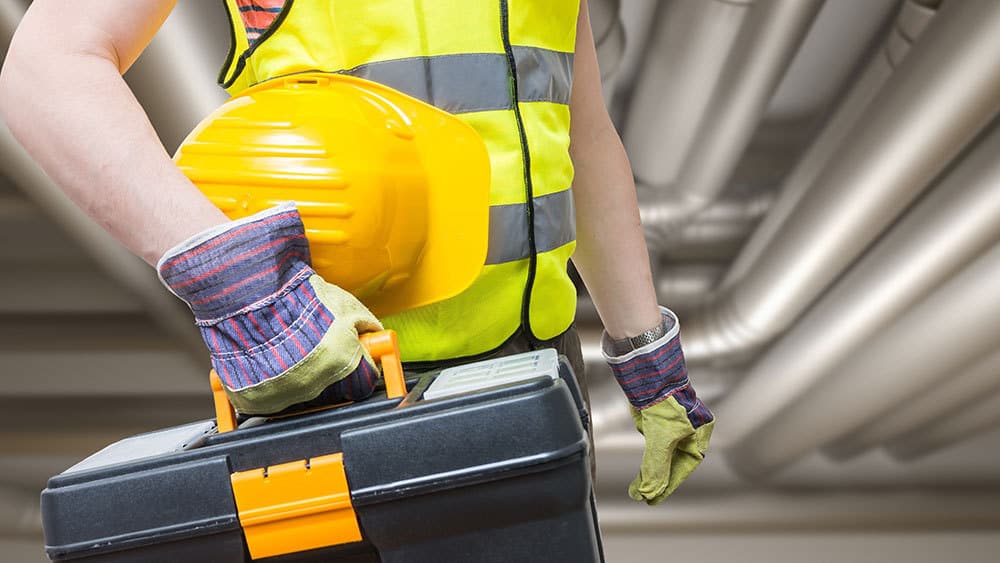
The US Environmental Protection Agency (EPA) states that every $1 spent on preventative HVAC maintenance saves $4 in repair costs, proving its financial value. Moreover, proactive HVAC upkeep enhances efficiency and longevity.
1. A Path to Lower Utility Bills
One compelling rationale for timely HVAC preventive maintenance is the potential for significant savings on your utility bills. When your HVAC unit operates at peak efficiency, it doesn’t overexert itself, resulting in reduced energy consumption.
2. Improve Indoor Air Quality
Indoor air can be 2 to 5 times more polluted than outdoor air, making air quality a major concern.
Preventive maintenance activities help by reducing airborne contaminants through regular filter cleaning and replacements, duct cleaning, and coil maintenance — all of which improve air quality by keeping dust, allergens, and mold at bay while regulating humidity levels.
3. Prolong the Life of Your HVAC System
HVAC systems that receive regular maintenance can last more than 20 years.
The reason is simple—routine tune-ups keep the system running efficiently, reducing wear and tear.
Regular HVAC inspections catch small issues before they turn into costly breakdowns, ultimately extending the unit’s lifespan. Consistent maintenance avoids premature replacements and allows for long-term efficiency and savings.
4. Mitigating Extreme Temperature Challenges
Extreme temperatures significantly stress HVAC systems, leading to inefficiencies, increased energy costs, and potential breakdowns.
Regular proactive maintenance tasks, such as regularly cleaning and changing air filters during peak seasons, ensure efficient system performance.
5. Lower Chances of Costly Emergency Repairs
Neglecting regular HVAC maintenance can put your system at serious risk of failure, and that’s a situation you definitely want to avoid. A major breakdown could cost you anywhere from $5,000 to $12,500, and that’s not even counting labor!
Fortunately, with routine check-ups, you can reduce the chances of your unit quitting on you when you need it the most—whether it’s the scorching heat of summer or the bitter cold of winter. It’s a small effort that saves you from expensive, unexpected repairs and keeps your comfort in check.
HVAC Preventative Maintenance Cost

Routine HVAC maintenance costs around $75 to $200. In case of minor repair, you will require reactive maintenance, which can cost around $100 to $1,600.
While preventative HVAC maintenance may seem like an added expense, it can spare you from emergency service costs or the need to invest in a new HVAC system.
In Conclusion
Scheduling routine examinations and following through on correcting minor problems will ensure you enjoy a comfortable home environment without any worries about your system failing. In addition, a well-maintained unit will have less severe problems, meaning less hassle and unnecessary costs. For example, a little effort now will prevent a significant hassle amid a mid-January snowstorm or a Fourth of July sweltering day. Moreover, with HVAC maintenance costs going through the roof, it’s best to take timely action.
Frequently Asked Questions
What is HVAC PM?
https://www.smarthometc.com/blog/hvac-inspection/HVAC preventive maintenance involves routine inspection, cleaning, and servicing of heating/cooling units to ensure they run efficiently and reliably.
What Are the Signs That My HVAC System Needs to Be Repaired?
If you notice weak airflow, strange noises, unusual odors, or an unexpected increase in energy bills, your HVAC system may need repair. Other warning signs include frequent cycling, inconsistent temperatures, or water leaks around the unit. Proper HVAC maintenance can prevent major failures and costly emergency repairs
What to Expect During a Professional HVAC Maintenance Visit?
When a trained service technician visits your home for HVAC inspection, they perform essential checks to keep your system running efficiently.
- Check refrigerant levels and inspect for leaks.
- Clean and straighten the coil fins to ensure proper airflow.
- Inspect gas connections for leaks.
- Tighten all electrical connections.
- Lubricate moving parts to prevent wear and tear.
How Long Does HVAC Preventative Maintenance Take?
HVAC preventative maintenance typically takes 1 to 2 hours for a professional. However, the time may vary depending on your system's size, age, and overall condition. Older units or those needing repairs might take longer to service. If you are doing every single task yourself, it may take longer.

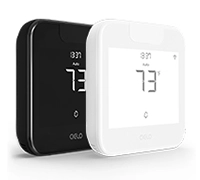
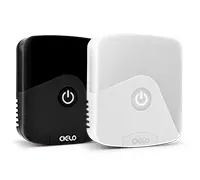

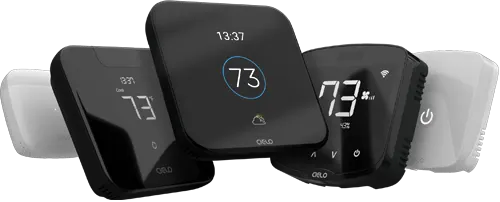

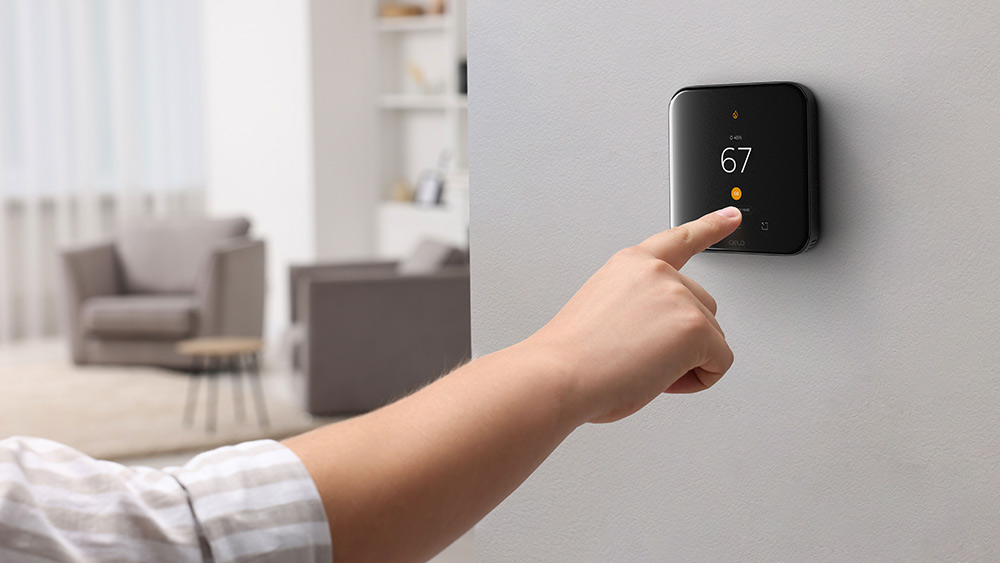
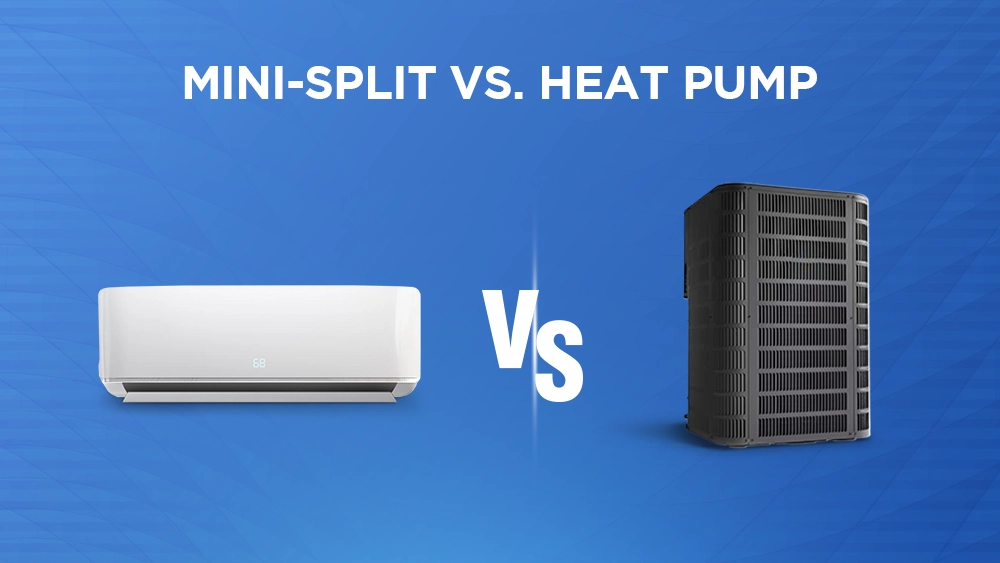

Leave a Reply